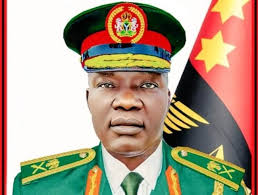In a distressing turn of events, the Nigerian Army finds itself entangled in a dire situation as corpses decompose in Army mortuaries due to widespread blackouts caused by the staggering N42bn electricity debt.
The Chief of Army Staff, Lt. General Taoreed Lagbaja, has sounded the alarm, appealing for immediate action to salvage the deteriorating conditions in various Army barracks and cantonments.
Lt. General Lagbaja, during a visit to the Minister of Power, Chief Adebayo Adelabu, in Abuja, revealed the grim consequences of the power outage, stating that the decay of corpses in Army mortuaries has sparked protests from the owners.
The debt, loaded on meters regardless of credited amounts, has left some barracks and cantonments in total blackout since January.
Expressing his concern, Lagbaja conveyed the Army’s inability to raise funds to settle the entire debt, soliciting liquidation similar to the resolution adopted in 2005 by the then President.
Describing the blackouts as security threats, he emphasized the urgency of addressing the issue, considering its broader implications.
Meanwhile, Minister Adelabu assured the Army of his commitment to engage in dialogue with power distribution companies to relieve the Nigerian Army of its N42bn electricity debt burden.
Acknowledging the financial constraints, Adelabu proposed restructuring the debt with a condition of regular payments, stressing that the debt could not be entirely written off.
The Minister shed light on the multifaceted challenges in the power sector, ranging from vandalism of power infrastructure to a shortage in gas supply, national grid collapses, and explosive attacks on transmission stations in volatile areas.
Adelabu urged patience, acknowledging that the power sector’s fundamental issues span back 50 years and require systematic solutions.
Addressing the wider context, Adelabu emphasized that power outages are not exclusive to army barracks but a national concern.
He appealed to profit-oriented Discos and Gencos to adopt monthly repayment plans, rather than embedding the entire debt in meters.
Furthermore, Adelabu charged the Army to continue assisting the ministry in safeguarding power facilities nationwide.
He pledged to seek collaboration with development partners for installing solar PVs and Battery Energy Storage Systems as alternative power sources in army barracks and cantonments.
Amidst this power crisis, numerous government agencies and parastatals face similar challenges, owing substantial electricity debts. Recently, on February 20, 2024, it was reported that 86 ministries, agencies, and departments owed the Abuja Electricity Distribution Company a staggering N47bn.
The power firm issued a public notice, warning of disconnection within 10 days if the debts remained unpaid, listing notable names like the Presidential Villa, National Security Adviser, and the Ministry of Power among others.
The power sector continues to grapple with systemic issues, requiring collaborative efforts for lasting solutions.
Do you want to share a story with us? Do you want to advertise with us? Do you need publicity for a product, service, or event? Contact us on WhatsApp +2348183319097 Email: platformtimes@gmail.com
We are committed to impactful investigative journalism for human interest and social justice. Your donation will help us tell more stories. Kindly donate any amount HERE




